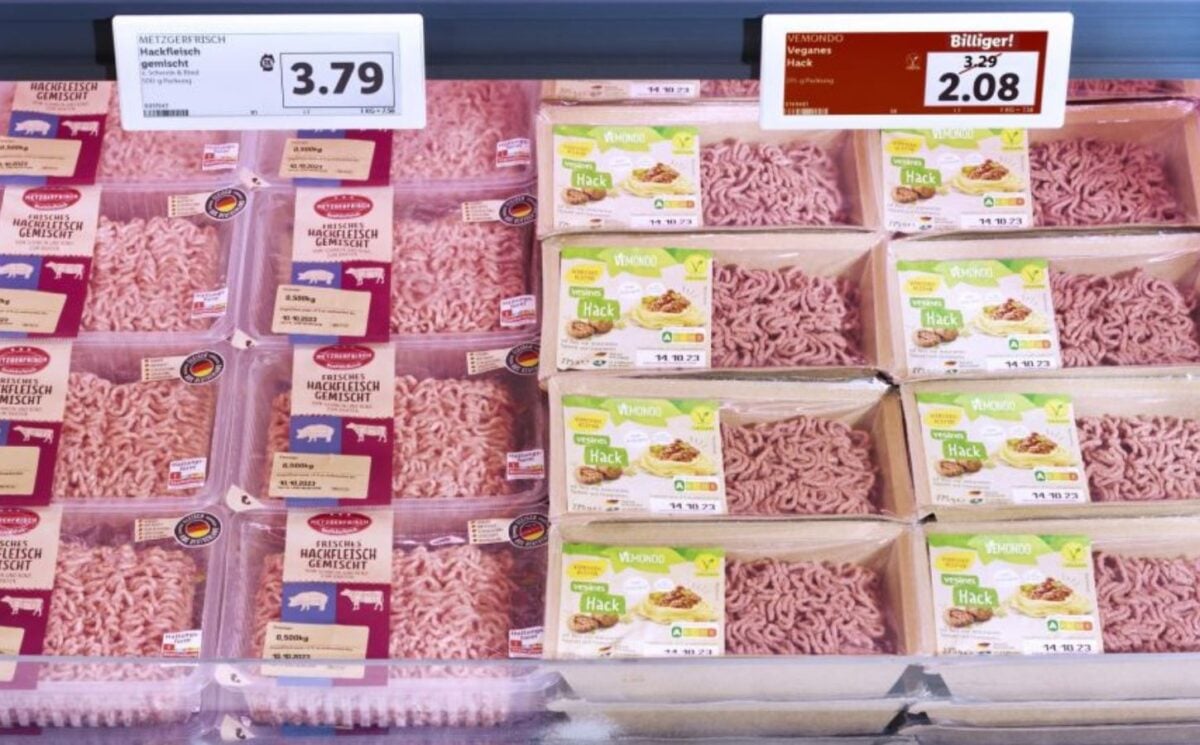Sales of vegan products at budget supermarket chain Lidl Germany have increased by more than 30 percent in the past six months.
Read more: Supermarket Chain REWE ‘To Open All-Vegan Store’
Lidl made the announcement at a protein transition event it hosted in Berlin last week, reports Vegconomist. It said that sales had risen since it created price parity between meat and plant-based alternatives in October 2023. As part of its effort to encourage customers to choose plant-based, it also began placing vegan products next to animal-based versions in stores.
Lidl has been at the forefront of the transition to plant-based protein among major food retailers. In February 2023 it announced it would reduce the amount of animal products it sells while expanding its vegan range. Lidl’s chief buyer Christoph Graf said at the time that there is “no alternative” if we going to “feed ourselves within planetary limits.”
Healthier and more sustainable

Lidl launched its own-brand plant-based range Vemondo across Europe in 2021. It includes around 50 products such as oat milk, pizza, cheese, tofu, and mince. Lidl says the products are carbon neutral. In 2022, Vemondo won PETA’s Vegan Food Award for Best Vegan Private Label.
Read more: Lidl Named Cheapest UK Supermarket To Buy Vegan Christmas Food
As well as lowering prices for plant-based alternatives, Lidl maintains low prices for fruits and vegetables as part of its Healthy Eating Pledge. It aims to increase sales of fresh fruit and veg by 35 percent by 2026.
Change in Germany
Germany is a fitting location for an event – which included politicians, businesspeople, and scientists – focused on transitioning to sustainable sources of protein. The country’s newly published dietary guidelines recommend that people eat at least 75 percent plant-based. The German government also recently committed millions of euros to help boost development of plant-based proteins.
Read more: Tesco Says It’s In Its ‘Second Phase’ Of Plant-Based Growth
Meat eating has hit a record low in Germany, with around 10 percent of people living there now thought to follow a vegetarian diet. In addition, around 55 percent of the population identify as “flexitarian,” meaning they already mostly eat plant-based foods.






